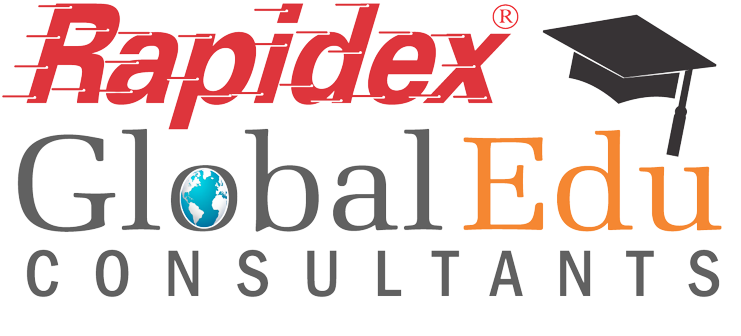Rapidex Global Education
Education System in Canada
We provide proper counselling at every step. Our experts help you through Application Process, Admission, Scholarships, Visa Insurance, Student Loan, Accommodation & Post-study work.

In Canada, tertiary education includes every type of formal teaching program past secondary schools, be it academic, vocational, technical, or the professional education offered primarily by universities, colleges, and special institutes.
The academic year tends to run from September each year, but some universities have significant starting dates for their postgraduate degrees.
The degrees & diplomas from Canadian Institutions are among the most widely recognized in the world. The education system in Canada encompasses of both public funded & private institutions. Students have a diverse choice of 90 Universities & 175 Community Colleges offering a wide array of programmes.
The certification awarded in the Canadian institutions
- Certificate: Is a qualification awarded upon successful completion of a programme which is usually one year in length.
- Diploma: Is a qualification awarded based on one or two years of successful study.
- Advanced Diploma: Is a 3 years program some of which may lead to a Bachelors Degree.
- BachelorsDegrees: Are awarded by Universities/ University Colleges/ Community Colleges after four years of full-time study and lead to graduate level studies.
- Post Graduate Diplomas / Certificates: It lead to a Masters Degree. These programs have work terms which provide full-time opportunities to gain practical experience along with theoretical studies. A typical co-op term lasts 12 to 17 weeks. The prerequisites to participate in these programs is a Bachelors Degree of 3 or 4 years duration.
- MastersDegree: Isan option for Bachelors Degree. Graduates who have an interest in further learning and research, and for those who want to broaden their career possibilities. It is for 2 years duration and can be pursued after a 4 years Bachelors or a 3 years Bachelors & a 1year Post Graduate Diploma from Canada.
- Doctorate or PhD: Isa degree ranking above the Masters Degree and generally requires four to seven years to complete
- Technical/ Career Colleges: These are privately owned and operated with the main objective of preparing students for the job market after a short period of instruction. The emphasis at career colleges is on practical skills over a broad range of programmes.
- Community Colleges & Technical Institutes: They typically have more career oriented, practical/ technical related curricula, with small classes, off-campus course offerings, a greater ratio of laboratory space to class room space, and an interactive teaching style.
- University Colleges: As a component of the Canadian University system, University Colleges offer students a choice of either academic oriented university degree programmes or the more practical-oriented college diplomas and certificates.
- Universities: Canadian Universities are largely public funded and as a result, offer consistently high quality education at lower tuition rates for International students than their counterparts in competing countries. They offer a broad range of courses and degrees from Undergraduate to Doctorate and also certificate and professional degrees. Class sizes in universities are generally large.
